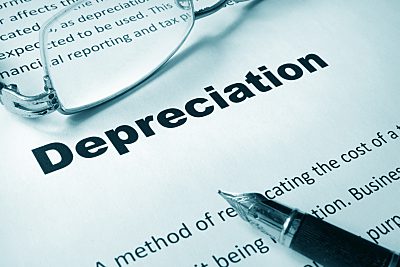In short, depreciation is simply the measurement of how much an asset’s value is reduced over time. Some assets depreciate because they are used and the wear and tear naturally causes them to be worth less as time passes. Other assets depreciate simply because the technology involved becomes more obsolete over time, making the assets worth less monetarily. Since the worth of assets does contribute to the overall valuation of a business, depreciation is an important concept when you’re buying or selling a company.
It’s Not Just a Taxation Concern
In the realm of business accounting, depreciation is most often considered with regard to taxation. Inland Revenue provides a tools to identify depreciation of all types of assets for taxation purposes and understanding tax-based depreciation can be a good start for business owners. Know that tax-based depreciation isn’t quite the same as market-based depreciation, though you can use some of the same figures when dealing with valuation.
Tax depreciation tends to follow a very specific formula that diminishes the value of an asset by a set percentage over a predetermined length of time. Furniture or chattels, for example, might be depreciated over a seven-year period with regard to the taxable value associated with the assets. In reality, the market value may not match the taxable depreciation value exactly; furniture that has been refurbished or well cared for might hold more value for a new business owner despite the formulaic depreciation for taxation purposes. This is one reason it’s a good idea to work with a third-party valuation professional to determine a fair market value for a business you are intending to buy or sell.
Depreciation’s Role in Valuing a Business
The value of assets is only one of the things considered when valuing a business. Commonly, business valuation relies on some common major concerns, including:
- The expected future performance of the business
- What type of return a buyer can expect to receive on their investment
- The current cash flow of the business (which isn’t the same as the profits)
- How much the business is leveraged regarding debt
- How the overall deal is structured (is the buyer purchasing the company outright, buying a share in it, buying in at an incremental rate?)
- The types of assets involved and their value.
It’s rare for assets alone to be the sole major component of a business sale, though there are some exceptions. If a company is heavy on inventory, materials or machinery, another company may be looking to purchase it for those resources alone. In such a case, the value of the assets and the depreciation of those assets (both currently and expected in the future) plays a much bigger role in value.
In cases where asset value and depreciation don’t play a leading role in business valuation, the details are still important. Firstly, because buyers must understand exactly what they are purchasing. Secondly, because both buyers and sellers should fully understand the accounting and tax implications of any ownership transfer before they sign an agreement.
For Further Information about this article, contact your nearest LINK Business Broking office at:




